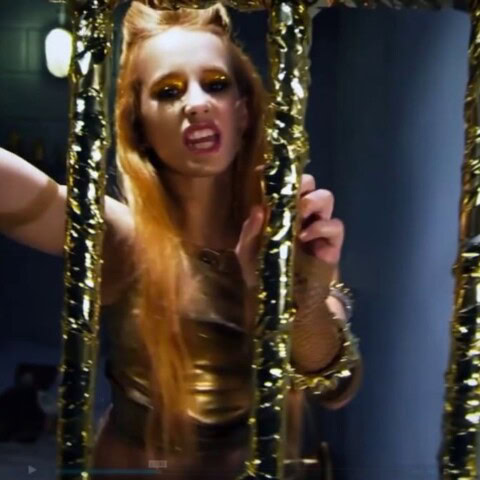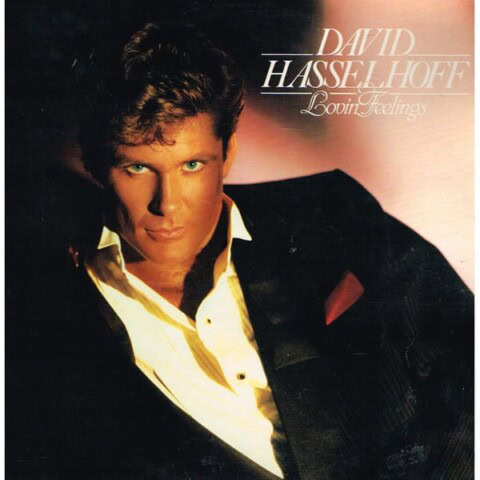Steel notes: I have but a foggy recollection of interviewing Fleetwood Mac’s John McVie, in 1980, in a hotel conference room in Wellington. Each member of the band was at a different table, being interviewed by a different member of the press. If anyone has a more fulsome recollection of this event, I would to have the gaps in my memory filled in. I do have vague recollections of the performance at Athletic Park, where droves of fans walked out after they became aware that Stevie Nicks was barely holding it together, and the gig lost whatever momentum it had when there was some kind of altercation between band members.
Gary Steel interviewed Fleetwood Mac’s John McVie during their recent New Zealand tour. John is Mac bassist and founder member, along with Mick Fleetwood.
Steel – You had some trouble with New Zealand Customs on the way in?
McVie – They had trouble with us. They couldn’t find anything! There was nothing to find.
Steel – Why are Customs clamping down so hard on rock bands?
McVie – It’s obvious. McCartney. Japan. So if you’re a rock’n’roll band you’re most likely to be a dope fiend or… probably some businessman who followed us walked through with half a kilo of dope. But they were very nice.
Steel – Fleetwood Mac seems to have gone through a lot of changes.
McVie – When you think about it there really haven’t been many changes in the course of Fleetwood history. They’ve just been well-publicised.
Steel – Why do you keep on going after all this time? You obviously don’t need the money.
McVie – Mick and myself, and Christine as well, saw no reason to stop doing it. I mean, that was very much the nucleus. And there was nothing else we could do. I mean I’m not a trained entomologist or mathematician. What we do is… play music. That’s what we live for.
Steel – How have you gone about choosing new members over the years?
McVie – It’s called tripping over your own feet and smelling of roses. We’ve been very lucky so far. Obviously there’s been a certain amount of thought behind who joins the band and who doesn’t. We’ve had a lot of luck. Right now is just the best format that we’ve had in terms of music, musical ability, singers and friends.
Steel – You’re still friends?
McVie – It’s one of the most important things. That you can get on… It almost overrides your musical ability. You can’t be a working band and not get on with somebody… it’s just a disaster. We’ve been bitter and twisted, but it’s been rational enough to be talked out. I was bitter and twisted when Christine went off with a friend of mine and he was the light-man on the road. But if you love someone you balance it out. Maybe it’s a question of maturity. We’re not a young band.
Steel – Why do you think Fleetwood Mac is so incredibly popular?
McVie – The band’s never tried to pretend it’s anything more than it is. We screw up on stage, screw up interviews – everyone has to wipe their ass. It’s honest. Right band at right time in right place. It’s a good band.
Steel – What would stop you?
McVie – Old age. To put it in cold terms. We could go and sit on a farm and do nothing. The only reason we’re doing it’s cause we love doing it. It’s not what you look like. As long as you can put out the energy, and the music is valid…
Steel – What do you think of new wave and their criticisms of the old?
McVie – [long pause] It’s another repeated cycle. New wave is very, very old wave. There’s nothing new coming out – different words. But the aim of it is the same as 10, 15, 20, 25 years ago.
Steel – Would you return to live in England?
McVie – When we left Britain we were broke. That was six years ago. We moved to the US because that’s where the record company was, and we needed to establish an identity. Have you been to England recently? Desperate. It’s empty. There’s no incentive to do anything. They’re just happy to sit back and…
Steel – There’s a lot of good music coming out of there though.
McVie – What? What good music?
Steel – Police, Costello…
McVie – But that music’s been around for years. That guy with the Police, Andy Summers. When I was with John Mayall, he used to play with a guy called Zoot Money. I don’t think there’s any new music. They might be whining about something else…
Steel – Tusk is very different to Rumours.
McVie – It was radically different. It was a good step for the band. Lindsey had a lot to do with it. A harder approach. More raucous. Less refined.
Steel – Is a new album in the works?
McVie – Til the end of the year we’re working on the road. I think we go in the studio January/February.
Steel – Will it take as long to record?
McVie – No, much shorter. Thirteen months is a long time. I was eager to get out of the studio. I couldn’t wait to get out. Lindsey loves it. That’s his forte and Christine and Stevie. It drives me crazy. I want to be out there [points in the direction of Wellington harbour].
Steel – Is an album worth spending 1.5 million dollars on?
McVie – It was an expensive studio. We take a lot of care over a track and sometimes a track’s scrapped completely. And sometimes we go down there and just socialise, and at two hundred to three hundred bucks an hour just to sit and drink is an expensive hour. That’s just the way it worked. It’s our money, so fuck it.
Steel – How much control do you have over your records? The finished product?
McVie – The band has total control, which is very good, because you only have yourself to blame.
Steel – Why the dog on the cover?
McVie – That’s the engineer’s dog. It’s in the studio every day. And he was just going up to someone’s leg and Mick took a snap of it. I never understood why it was called Tusk. There’s no symbolism behind it. No phallic symbolism or anything like that [laughs].
Steel – Don’t you think there’s a lack of communication between audience and group at the large venues you play?
McVie – As long as the PA’s good it doesn’t matter. On stage you can’t see the audience anyway. You see three rows. So all you’re getting is the vibe. If the PA’s right more people can hear you. It makes it louder and more people get deaf!
Steel – Who makes the decisions in Fleetwood Mac?
McVie – Seventy percent Mick, thirty percent me. All major decisions, like when we’re gonna tour, are made by everyone.
Steel – You haven’t got a manager?
McVie – Over the years… we used to have a manager so we didn’t worry about the business. It was just phone-calls all day. But then we found the right people to handle the legal side and the people side, the pressure dropped and we could get more or less back to the basics, you know. But Mick I think enjoys the business side more than I do.
Steel – So your advice to groups would be to steer clear of managers?
McVie – There’s good and there’s bad. It depends on the experience of the artists.
Steel – Do you ever see any of the musicians you used to play with?
McVie – John Mayall’s just been staying with me, stayed with me for a month. His house burnt down. I saw Peter last year. Haven’t seen Jeremy in a couple of years.
Steel – Would you work with Peter again?
McVie – No. No way. A very destructive person. Mainly to himself. He’s just a very old friend that was just very negative. Terrible to say that. I think he’s the best guitar player in the world. [Pause]. One got religion, one got acid and one got nerves. Jeremy got religion in a big way. Danny was always a hyper-sensitive guy. He just couldn’t handle it. And Jeremy is quite happy with the Children Of God. Peter wasn’t helped by certain substances.
[McVie asks do reporters get sick of “punks” giving their thoughts on politics, religion and conservation as though they know it all? He notes that musicians have no special knowledge or intuition in these matters].
McVie – Musicians are very insular people, and there are a lot of other pressures to keep them away from reality, you know what I mean?
[Another journalist asks McVie if the money and therefore the leisure gives him time to sit and think about life. After a long pause, he says that it gives him more time to sit and drink].
Steel – Has anyone got solo albums planned?
McVie – Christine’s got one in mind. Most of the writers have somewhere along the line.
Additional Asides
JOHN LIVES IN Maui, Hawaii, with his American wife, and has a second house in Los Angeles which he lives in when the band are working.
Every member has a private bodyguard. John is very paranoiac about the dangers involved and the crackpots waiting to slit his throat at every corner. He mentions that the band have had several minor episodes already in Wellington where the bodyguards have been useful.
He admits that they are not a violent band – that “the music doesn’t lend itself to that type of atmosphere” – but insists that a lot of people are jealous for one reason or another.
He’s very scathing of critics in general. “What gives someone the right to be a critic? What credentials do they have?” He reckons that a bad review of, say, Tusk, will stop the uninitiated from further exploration, although it may not deter the fans. He thinks that critics should be musicians.
“It’s very fashionable to be able to cut people. There’s never anything positive – NEVER. Sometimes it hurts. Stevie sometimes gets really upset. What right has this cunt got to cut up people?”
He goes on to say that if someone is going to criticise his playing, he should be able to do what he does and be as successful at it. Etc.
The Show, Athletic Park
WHAT DO YOU want to hear? That they played this song and that from their rosy repertoire note-perfect from all the pleasant product of recent years? Well, sorry, you’ve already read those reviews.
The monster crowd remained strangely subdued throughout the performance. F. Mac gave their most for two hours: all the songs you would have expected. I was surprised by the “energy” in comparison to the largely laid-back feel of Rumours, et al. But was it real energy? Me thinks not in toto, because every time they wanted an extra loud push or nuance to the sound, the soundman in the wings of the stage would turn his little “louder” knobs to add that emphasis.
F. Mac were fairly brisk, in the main, but it seems a rip-off in parts to maintain a reliance on such technological crutches. Admittedly, the material is diverse and a large quantity of it is high quality. But quantity, as many of the largely disappointed audience found, also brings boredom. So does diversity.
In short, though Mac did their best under the circumstances, their music just wasn’t enough to warm up an audience on a fairly chilly Thursday night. The people wanted the ballads smooth and lush as on record, but instead they were beaty and Stevie Nicks’ voice rather raspy, losing its lilting quality. The people wanted the rock to roll, but although effective it remained fairly static, not inducing the dancing throngs expected at such events. And the medium-tempo numbers were just too boring and “friendly” for such a night: a sweltering Sunday afternoon, perhaps.
But worst of all was that the group appeared to let personal squabbles effect the performance: a gross display of unprofessionalism. And the fact that the musicianship, in particularly bassist John McVie’s case, was full of blunders. Mistakes can be expected in live performance of course, but it all made me wonder, I’m afraid, why on earth this very competent but definitely unbrilliant band has achieved the sort of megastardom they have.
Note: The story above originally appeared in the April 1980 issue of my Wellington music freebie, IT mag. I’m not entirely sure that the live review at the end was written by me (I hope not, it’s awful) because it has another name on it. But I suspect that it was a pseudonym, because the review bears the hallmarks of my in utero penmanship.















